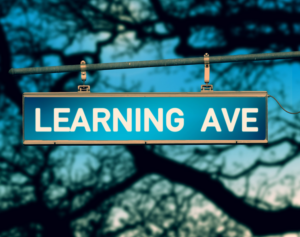Why Plan?
Planning is an important activity in many contexts – planning a business strategy, planning a workday, planning a menu, planning a vacation.
Planning involves considering options and making choices. When you’re planning a vacation, for example, you consider where to go, for how long, how to get there and back, how much to budget, and more. Even if you don’t formally write a plan, thinking about these aspects of your vacation will make it progress more easily.
A management text discusses the benefits of planning, which can be extended to many situations: [1]

“In today’s chaotic environment, planning more than a few months in advance may seem futile. Progress, however, is rarely made through random activity. Planning does provide benefits that facilitate progress even when faced with uncertainty and a constantly changing environment.”
Some benefits of planning include
- defined goals
- increased motivation
- reduced stress
- efficient use of resources (material resources, people, time)
Although a detriment of planning might be decreased creativity or flexibility, planning is still important. As former president Dwight D. Eisenhower stated, “Plans are worthless, but planning is everything.”
When asked to identify the essential meaning of this quotation, AI stated:
“This quote means that having a fixed plan isn’t as important as the process of preparing and thinking ahead. Plans often change because life is unpredictable. But when you plan, you build understanding, develop strategies, and prepare your mind to deal with problems.
So even if the original plan doesn’t work out, the effort you put into planning helps you stay calm, think clearly, and adapt to new situations. That’s what really matters.”[2]
Planning in an Educational Setting
You may not have considered the process of planning in a formal educational setting. In many cases, there’s a prescribed series of things you need to do (e.g., courses to take, requirements to fulfill) in order to achieve your goal, which is most often to complete a certificate or a degree. However planning is useful even in a prescribed situation, as there are often choices to make.
Planning in an educational setting may involve:
- investigating courses that are required for your degree
- investigating courses that you’re interested in, aside from your degree area
- investigating whether to pursue credit through experiential learning (CPL)
- planning a timeline for your studies
- planning your studies with a professional goal in mind
- and more…

Planning involves creative thinking, in terms of thinking broadly about various options, which sometimes can involve thinking “out of the box.”
Planning involves critical thinking, in terms of consciously making reasoned choices about options.
Planning enhances learning processes, and that’s what higher education is all about – learning how to learn.
